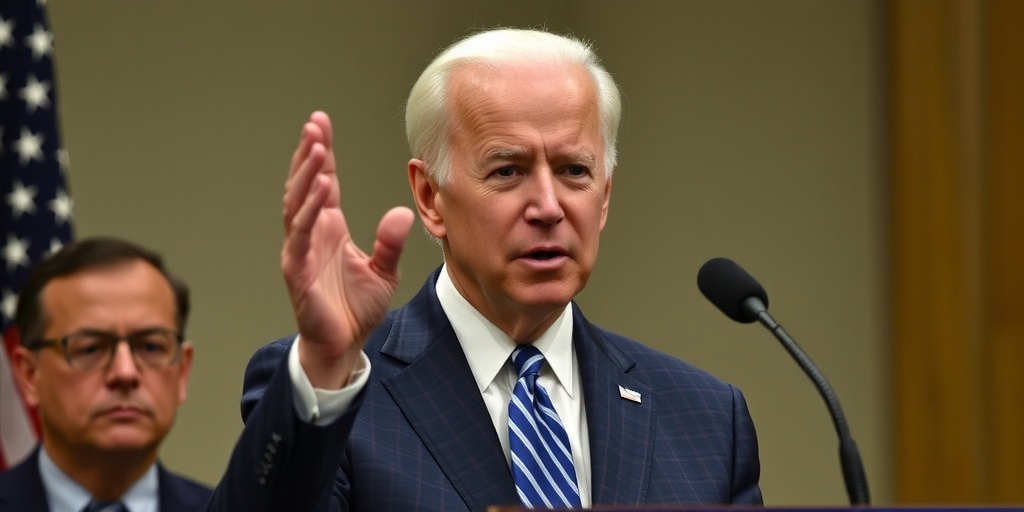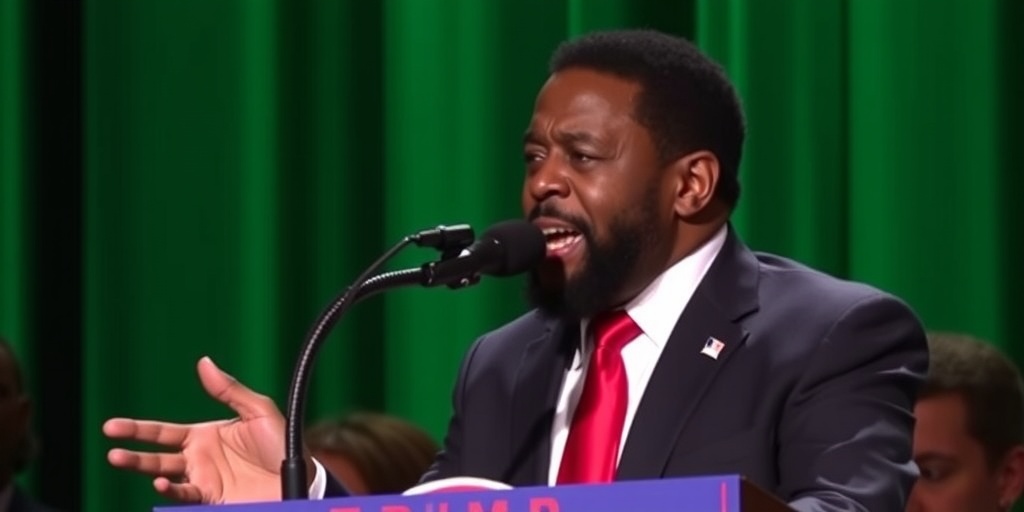Now Reading: Biden Commutes Sentences of Drug Offenders
-
01
Biden Commutes Sentences of Drug Offenders
Biden Commutes Sentences of Drug Offenders

On Friday, President Joe Biden made headlines by announcing one of the largest commutation actions in U.S. history, commuting the sentences of nearly 2,500 individuals who are currently imprisoned for nonviolent drug offenses. This sweeping decision represents the most extensive commutation of individual sentences ever issued by a sitting U.S. president, marking a significant move towards addressing the inequities within the criminal justice system.
The commutation efforts focus on inmates who are serving disproportionately long sentences for drug-related crimes, particularly those whose penalties would likely have been less severe under current laws. The Biden administration emphasizes the importance of this action in correcting longstanding disparities that have primarily impacted Black communities, exacerbating the issues of mass incarceration and the systemic injustices prevalent in the judicial system. In a statement from the White House, President Biden remarked, “This action is an important step toward righting historic wrongs, correcting sentencing disparities, and providing deserving individuals the opportunity to return to their families and communities after spending far too much time behind bars.”
This significant announcement is part of Biden’s broader commitment to reforming the criminal justice system, especially as he approaches the end of his term. In recent weeks, he has also commuted the sentences of nearly all federal death row inmates and achieved a record for a single-day commutation, releasing 1,500 individuals placed in home confinement during the pandemic.
Looking ahead, President Biden indicated that he is open to considering further pardons—those that erase convictions—and additional commutations. These potential continued efforts come in light of mounting pressures from advocates and members of his party who encourage him to utilize his clemency powers to assist vulnerable inmates who have faced systemic discrimination.
Among those advocating for further clemency are notable political figures, including Representative James E. Clyburn from South Carolina, who has pointed out the stark disparities faced by Black individuals historically imprisoned for crack cocaine offenses, which have dramatically differed in treatment compared to those convicted of powder cocaine offenses. Clyburn noted, “These are some of the inequities that Black people have been caught up with,” highlighting the need for corrective action.
This recent round of commutations, Biden underscored, focuses on offenders who were sentenced under now-discredited laws that treated crack and powder cocaine differently, contributing to disproportionate sentencing. The administration’s actions follow significant legislative efforts over the past two decades, which aimed to amend the damages inflicted by tough-on-crime laws, including mandatory minimum sentences. President Biden has previously acknowledged the repercussions of the 1994 crime bill, which he helped champion during his time as a senator, expressing regret for certain provisions that have contributed to the disparities he now seeks to rectify.
In a broader context, the Biden administration is responding to increasing pressure from advocates who have long called for these reforms. In particular, the focus has been on releasing those serving lengthy sentences for drug offenses that have since been revised. Calls for action surged following Biden’s unexpected move to grant a full pardon to his son, Hunter, who faced legal difficulties related to a federal firearm charge and tax evasion.
As he navigates the political landscape, Biden has reiterated the need for reforms aligned with congressional recognition of the need to address these injustices. He cited legislative efforts such as the Fair Sentencing Act and the First Step Act, emphasizing that the time has come for profound changes to equalize sentencing disparities.
Some of President Biden’s allies have made the case for using clemency powers to not only help individuals currently incarcerated but to also establish a significant hallmark of his legacy in criminal justice reform. Representative Ayanna Pressley of Massachusetts stated that addressing these issues is not only morally right but also pivotal for Biden’s historical legacy as a leader committed to justice.
As the Biden administration continues its clemency initiatives, advocates will be watching closely to see if further actions will be taken, especially to assist those whose lives have been considerably affected by outdated and unfair drug policies. The path forward remains uncertain, but the recent changes signify a noteworthy shift towards a more equitable approach to criminal justice reform in the United States, reflecting an acknowledgment of past mistakes and a commitment to making amends.
Stay Informed With the Latest & Most Important News
Previous Post
Next Post
-
 01New technology breakthrough has everyone talking right now
01New technology breakthrough has everyone talking right now -
 02Unbelievable life hack everyone needs to try today
02Unbelievable life hack everyone needs to try today -
 03Fascinating discovery found buried deep beneath the ocean
03Fascinating discovery found buried deep beneath the ocean -
 04Man invents genius device that solves everyday problems
04Man invents genius device that solves everyday problems -
 05Shocking discovery that changes what we know forever
05Shocking discovery that changes what we know forever -
 06Internet goes wild over celebrity’s unexpected fashion choice
06Internet goes wild over celebrity’s unexpected fashion choice -
 07Rare animal sighting stuns scientists and wildlife lovers
07Rare animal sighting stuns scientists and wildlife lovers





















